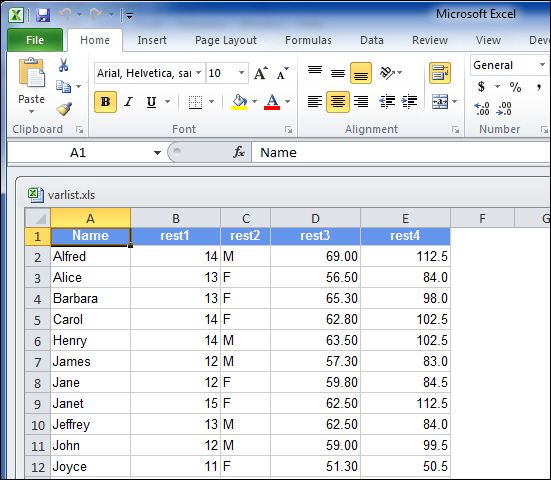- Home
- /
- Programming
- /
- SAS Procedures
- /
- Proc report: Weird Error Message
- RSS Feed
- Mark Topic as New
- Mark Topic as Read
- Float this Topic for Current User
- Bookmark
- Subscribe
- Mute
- Printer Friendly Page
- Mark as New
- Bookmark
- Subscribe
- Mute
- RSS Feed
- Permalink
- Report Inappropriate Content
Hi all--
I am doing the spreadsheet reformatting via tagsets.excelxpand proc Report. Everything was going fine until I started to get a weird error message. I have looked through all the documentation and I can’t find it. Does anyone know what this means?
Thanks!
ERROR: Read Access Violation In Task [ REPORT ]
Exception occurred at (4FD0788C)
Task Traceback
Address Frame (DBGHELP API Version 4.0 rev 5)
4FD0788C 0AC6DEA4 tkmk:tkBoot+0x6868
017ACCEB 0AC6DEB4 sashost:Main+0x16727
66FDD075 0AC6DED8 sasods:mcn_main+0xDC075
66FDACE4 0AC6E038 sasods:mcn_main+0xD9CE4
66FDF8E7 0AC6E5C8 sasods:mcn_main+0xDE8E7
58DAF291 0AC6E6A0 sasxml:mcn_main+0x1E291
08786C80 0AC6E7D4 sasrep7:mcn_main+0x5C80
0878CA96 0AC6E990 sasrep7:mcn_main+0xBA96
0878BE0A 0AC6EA00 sasrep7:mcn_main+0xAE0A
66F2B4E1 0AC6EB48 sasods:mcn_main+0x2A4E1
66F2A17D 0AC6EC6C sasods:mcn_main+0x2917D
64C14CF7 0AC6FBA0 sasrepmn:mcn_main+0x3CF7
64BF1090 0AC6FF90 sasrepor:mcn_main+0x90
017A2854 0AC6FFA4 sashost:Main+0xC290
0188E038 0AC6FFB8 sashost:Main+0xF7A74
77E64829 0AC6FFEC kernel32:GetModuleHandleA+0xDF
Accepted Solutions
- Mark as New
- Bookmark
- Subscribe
- Mute
- RSS Feed
- Permalink
- Report Inappropriate Content
The following may or may not apply: http://support.sas.com/kb/39/506.html
- Mark as New
- Bookmark
- Subscribe
- Mute
- RSS Feed
- Permalink
- Report Inappropriate Content
The following may or may not apply: http://support.sas.com/kb/39/506.html
- Mark as New
- Bookmark
- Subscribe
- Mute
- RSS Feed
- Permalink
- Report Inappropriate Content
Perfect, yes. I think the ":" in my proc report, code is the problem (as the the description of the error message indicated) . I am trying to pull in a list of variables using the wildcard : and when i remove the variables in the columns statement that have : at the end, the program works. Thanks!
- Mark as New
- Bookmark
- Subscribe
- Mute
- RSS Feed
- Permalink
- Report Inappropriate Content
This would be an scenario where you need to work with Tech Support. If the problem is a bad TAGATTR specification, then they can help you figure out what the right TAGATTR value should be.
cynthia
- Mark as New
- Bookmark
- Subscribe
- Mute
- RSS Feed
- Permalink
- Report Inappropriate Content
I am writing a description of the problem to Tech Support now. Thanks! I think the ":" in my proc report, code is the problem (as the the description of the error message indicated) . I am trying to pull in a list of variables using the wildcard : and when i remove the variables in the columns statement that have : at the end, the program works.
- Mark as New
- Bookmark
- Subscribe
- Mute
- RSS Feed
- Permalink
- Report Inappropriate Content
Hi:
Since you didn't post your code, I don't know what you tried. I hope you didn't try this:
DEFINE var: / display;
and try to use the variable list in the DEFINE statement. I would NOT expect that to work. A DEFINE statement only references 1 report item.
I tried using a varlist only in the COLUMN statement and didn't have an issue (see screenshot), even with a mix of numeric and character variables in the numbered variables in my list. So, it's probably a good thing that you're working with Tech Support.
cynthia
data testlist(keep=name rest:);
set sashelp.class;
length rest1 8 rest2 $1 rest3 rest4 8;
rest1 = age;
rest2 = sex;
rest3 = height;
rest4 = weight;
run;
ods listing close;
ods tagsets.excelxp file='c:\temp\varlist.xls'
style=sasweb;
proc report data=testlist nowd;
column name rest:;
define name / order;
define rest1 / display;
define rest2 / display;
define rest3/ sum
style(column)={tagattr="format:##0.00"};
define rest4 /sum
style(column)={tagattr="format:##0.0"};
run;
ods tagsets.excelxp close;

- Mark as New
- Bookmark
- Subscribe
- Mute
- RSS Feed
- Permalink
- Report Inappropriate Content
Cynthia@sas wrote:
Hi:
Since you didn't post your code, I don't know what you tried. I hope you didn't try this:
DEFINE var: / display;
Actually PROC REPORT is fine with a "SAS Variable List" in DEFINE and COLUMN statements and perhpaps other places too. It is NOT fine with a list of variables in a DEFINE statement. Sometimes using "SAS Variable Lists" like _ALL_ will cause the message
WARNING: Name is not in the report definition.
As _ALL_ refers to all variables in the input data set where the COLUMN statement may not include of those all variables.
12 proc report nowd list data=sashelp.class;
13 column sex age--weight name;
14 define _all_ / display;
15 define sex / order;
16 define Height--Weight / format=8.2;
17 run;
PROC REPORT DATA=SASHELP.CLASS LS=123 PS=63 SPLIT="/" CENTER ;
COLUMN ( Sex Age Height Weight Name );
DEFINE Sex / ORDER FORMAT= $1. WIDTH=1 SPACING=2 LEFT "Sex" ;
DEFINE Age / DISPLAY FORMAT= BEST9. WIDTH=9 SPACING=2 RIGHT "Age" ;
DEFINE Height / DISPLAY FORMAT= 8.2 WIDTH=8 SPACING=2 RIGHT "Height" ;
DEFINE Weight / DISPLAY FORMAT= 8.2 WIDTH=8 SPACING=2 RIGHT "Weight" ;
DEFINE Name / DISPLAY FORMAT= $8. WIDTH=8 SPACING=2 LEFT "Name" ;
RUN;
- Mark as New
- Bookmark
- Subscribe
- Mute
- RSS Feed
- Permalink
- Report Inappropriate Content
Hi:
Thanks for making me test my code. I should have tested before I posted. You are right. I stand corrected. (and all the more reason for the OP to work with Tech Support)
The interesting thing is that with SAS 9.3, ALL of the code below (including _ALL_ and the double hyphen list) worked for me. What version of SAS did you use for your test?
cynthia
ods listing;
** make sure I know the order of variables;
** to use the double hyphen list;
** name is in pos1, with sex--weight in pos 2 through 5;
proc contents data=sashelp.class;
run;
ods listing close;
** use double hyphen;
ods tagsets.excelxp file='c:\temp\use_double_hyphen_list.xls'
style=sasweb;
proc report data=sashelp.class nowd;
column sex--weight name;
define name / order;
define sex--weight / display;
run;
ods tagsets.excelxp close;
** use colon;
ods tagsets.excelxp file='c:\temp\use_colon.xls'
style=sasweb;
proc report data=testlist nowd;
column name rest:;
define name / order;
define rest: / display;
run;
ods tagsets.excelxp close;
** use _all_;
ods tagsets.excelxp file='c:\temp\use_all.xls'
style=sasweb;
proc report data=sashelp.class nowd;
column _all_;
define _all_ / display;
run;
ods tagsets.excelxp close;
** use _character_ and _numeric_;
ods tagsets.excelxp file='c:\temp\use_char_num.xls'
style=sasweb;
proc report data=sashelp.class nowd;
column _character_ _numeric_;
define _character_ / display;
define _numeric_ / f=best8.2;
run;
ods tagsets.excelxp close;
- Mark as New
- Bookmark
- Subscribe
- Mute
- RSS Feed
- Permalink
- Report Inappropriate Content
Cynthia@sas wrote:
What version of SAS did you use for your test?
cynthia
NOTE: SAS (r) Proprietary Software 9.2 (TS2M0)
- Mark as New
- Bookmark
- Subscribe
- Mute
- RSS Feed
- Permalink
- Report Inappropriate Content
Hmmm...curiouser and curiouser. And in the REPORT doc, it refers to the DEFINE statement as being used for a report-item (singular) and there's nothing in the doc about the ability to use the variable lists or referencing techniques. So, this is an instance where it seems like the colon technique,and some of the other techniques might work with SAS 9.3, at least and possibly 9.2, but they are probably not the cause of the READ ACCESS VIOLATION. So, we have now wandered far afield of the original question and issue. It'll be interesting to see what the problem really was/is.
cynthia
- Mark as New
- Bookmark
- Subscribe
- Mute
- RSS Feed
- Permalink
- Report Inappropriate Content
Cynthia@sas wrote:
And in the REPORT doc, it refers to the DEFINE statement as being used for a report-item (singular) and there's nothing in the doc about the ability to use the variable lists or referencing techniques.
PROC REPORT will accept a variable name list as a report-item in a DEFINE statement, but curiously this has never been documented. Our documentation people assure me that this will be rectified in the next edition of the PROC REPORT documentation.
- Mark as New
- Bookmark
- Subscribe
- Mute
- RSS Feed
- Permalink
- Report Inappropriate Content
Cool, Tim! Thanks for clarifying that!
cynthia
- Mark as New
- Bookmark
- Subscribe
- Mute
- RSS Feed
- Permalink
- Report Inappropriate Content
I've seen READ ACCESS VIOLATION from PROC REPORT many times. Usually involving FLOW (don't use that much any more) or COMPUTE as I recall. I usually just start factoring out bits until I find the point were it works again and then think about it some more.
Learn the difference between classical and Bayesian statistical approaches and see a few PROC examples to perform Bayesian analysis in this video.
Find more tutorials on the SAS Users YouTube channel.
SAS Training: Just a Click Away
Ready to level-up your skills? Choose your own adventure.






